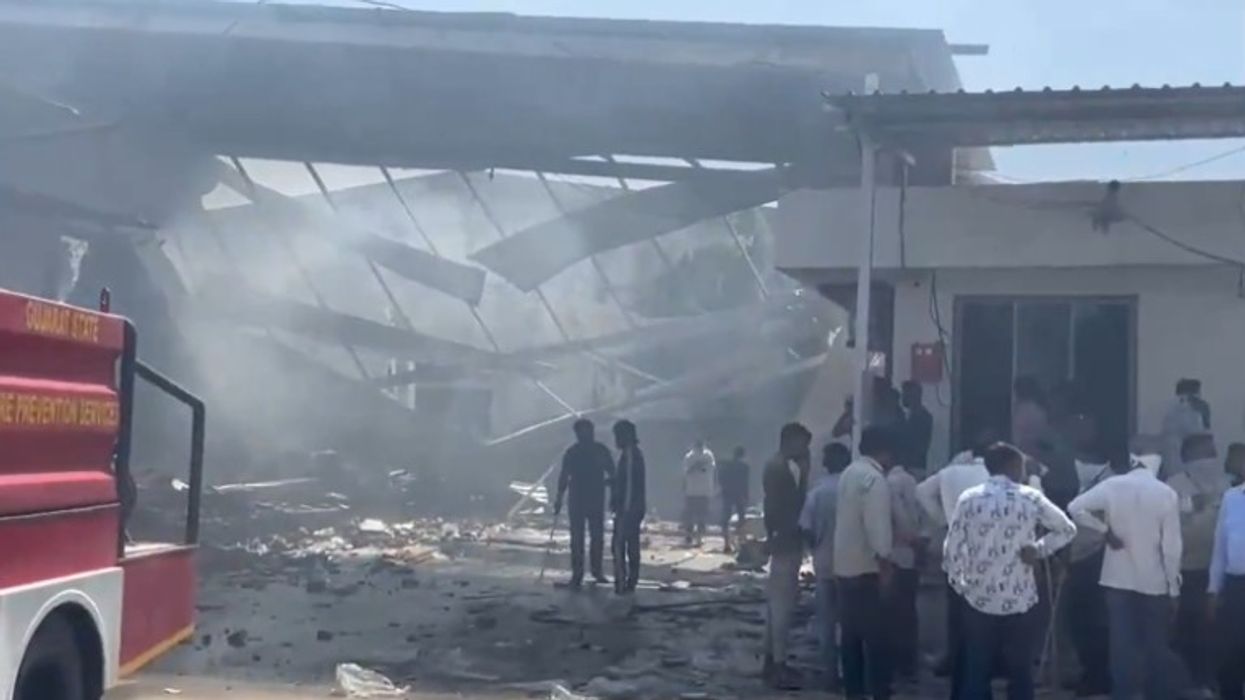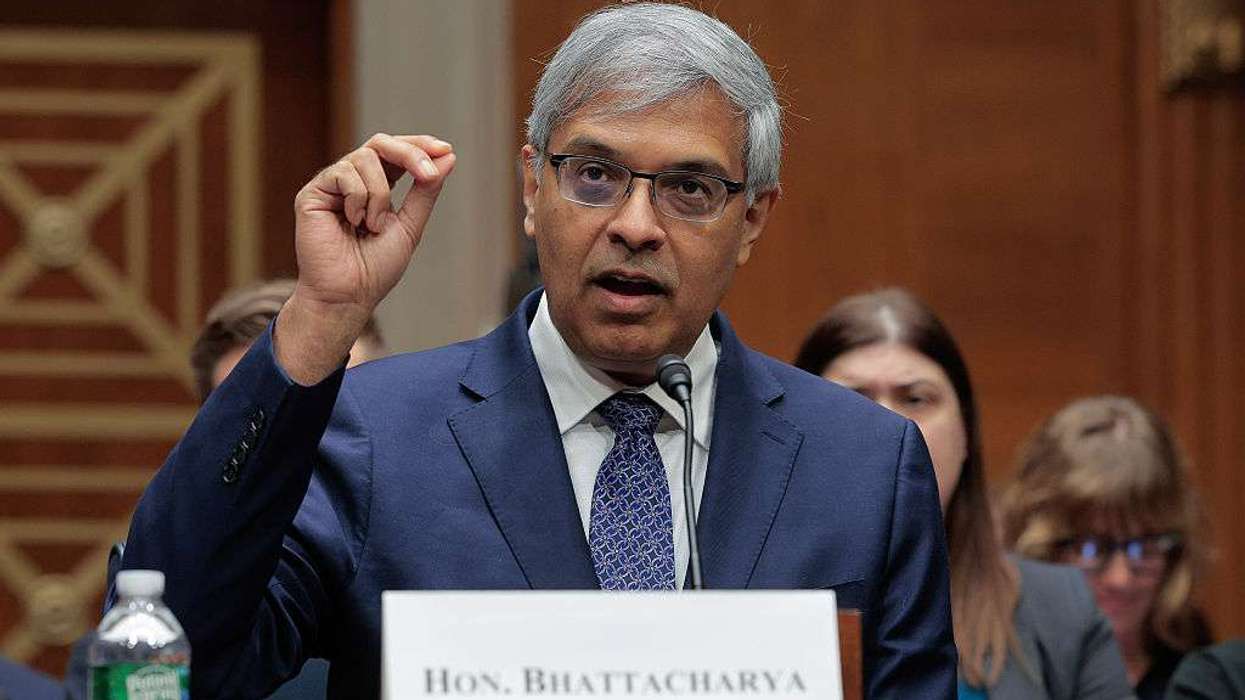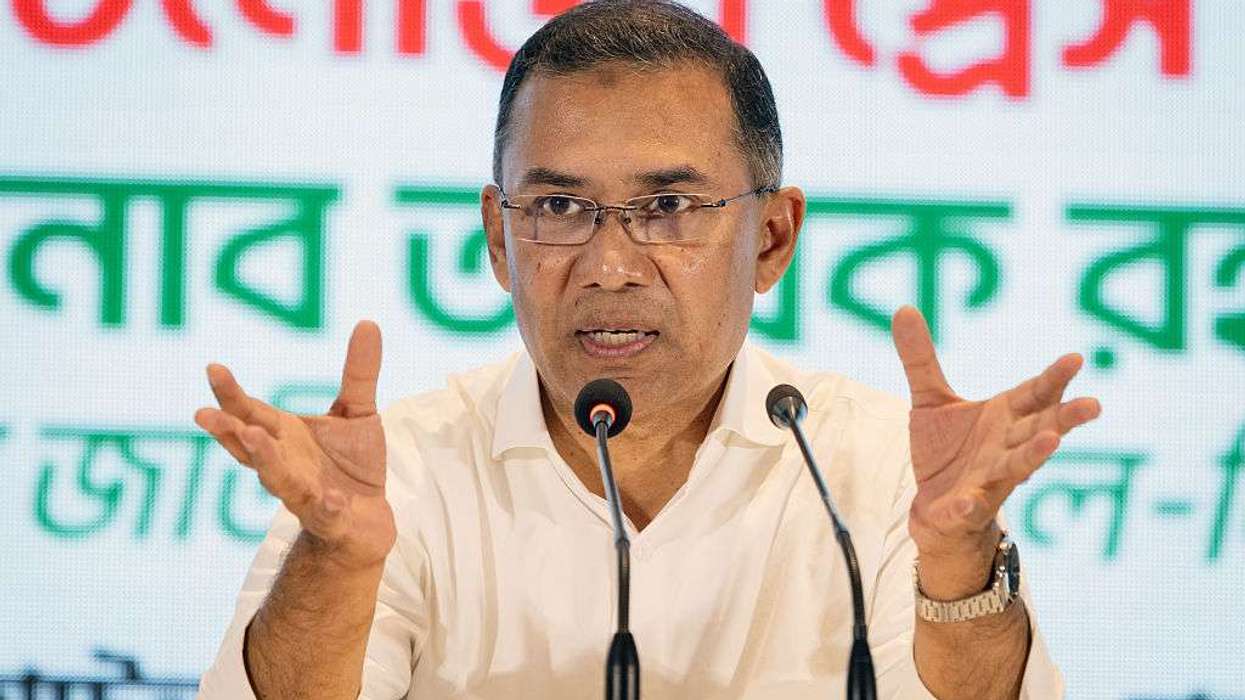AN EXPLOSION at an illegal firecracker factory in Gujarat's Deesa town killed 21 people and injured several others on Tuesday, officials said.
The blast caused the factory’s concrete roof to collapse, scattering debris and body parts across the area, officials confirmed.
"There was a huge blast in the factory, causing the concrete roof to collapse," government spokesman Rishikesh Patel told reporters.
Police officer CL Solanki said the death toll had risen to 21.
Mihir Patel, a senior district official, said, "The explosion was so powerful that body parts of some victims were found scattered in a farm 200-300 metres away."
The factory was operating without a licence, and many of the victims' families lived on the premises, he added.
Authorities have launched an investigation into the incident.
Fireworks are widely used in India, especially during Diwali and wedding celebrations. Accidents at firecracker workshops are common due to safety violations.
Last year, 11 people were killed in a firework factory explosion in Madhya Pradesh. In 2019, similar blasts killed 18 people in Punjab and 10 in Uttar Pradesh.
(With inputs from AFP)




